
With 3 I-O agents have already been approved for metastatic melanoma, 2 from BMS and 1 from Merck, the race for NSCLC has tightened with multiple ongoing clinical trials.

With 3 I-O agents have already been approved for metastatic melanoma, 2 from BMS and 1 from Merck, the race for NSCLC has tightened with multiple ongoing clinical trials.

The Canadian company Valeant Pharmaceuticals International Inc has reached an agreement to buy the prostate cancer immunotherapy from Dendreon Corp.

The integrated cancer services offered by Sarah Cannon will soon be supported by the personalized medicine technology platform of Syapse, to improve individualized patient care, the companies have announced.

Clinical trials are critical for pushing the oncology field forward, but there is a need for not only more patients to participate in clinical trials, but for a more diverse population, said Howard K. Kaufman, MD, FACS.
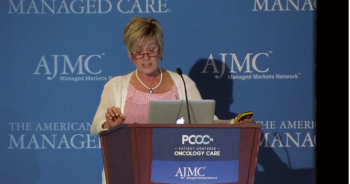
Mobile health (mHealth) can be so much more than smartphone apps, and it is a growing movement in the United States that can empower patients, providers, and payers, according to Meg Maley, RN, BSN, founder and CEO of CanSurround.

The drug, jointly developed by Pharmacyclics and Janssen Biotech, has received prior approvals for 3 other indications.

Smokers diagnosed with prostate cancer who were treated with radiation were at a greater risk of their cancer returning, metastasizing, and ultimately causing death. Former smokers, however, did not have the increased risk.

PACE has launched an evidence-based online tool, Continuous Online Indicators, which will provide information on research progress in 12 tumor types.

Daniel F. Hayes, MD, outlines the 2 paradigms presented in medical oncology: one where people would rather be overtreated rather than miss a chance to benefit by being undertreated and another where a person might not be willing to do something until they learn there is a reason to do so.

There is an important distinction between diagnostic and screening tests, and they have different issues in regards to decision making-although the person making treatment decisions should ultimately be guiding the ship, according to Bryan Loy, MD, MBA.

Both Francisco J. Esteva, MD, PhD, and Daniel F. Hayes, MD, agree that the role of genetic counselors should be limited when order diagnostic tests in medical oncology.

The panelists discuss guidelines for diagnostic test use and the biggest challenge from a payer standpoint.

Daniel Hayes, MD, explains the implementation of the American Society of Clinical Oncology's CancerLinQ for beta testing.

Bryan Loy, MD, MBA, discusses how payers can measure diagnostic test use and results, and Daniel Hayes, MD, weighs in with how CancerLinQ from the American Society of Clinical Oncology can help.

Daniel F. Hayes, MD, discusses the FDA's announcement that it will begin to regulate laboratory-developed tests and his belief that it will not squash innovation in the field.

Kyprlois is currently approval for use in multiple myeloma patients who have progressed on 2 prior therapies.
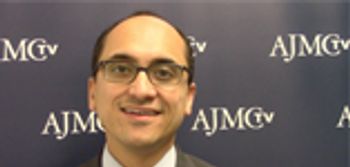
The term financial toxicity is relatively new and is being used to draw parallels between the physical toxicities of chemotherapy and the cost-related burdens cancer patients face.

Screening for deadly illnesses does not necessarily save lives despite assumptions otherwise, according to a study published in the International Journal of Epidemiology.

Although the Affordable Care Act (ACA) was signed into law more than 4 years ago, many aspects of it are fairly new, which makes it difficult to analyze the impact the law has had on the United States healthcare system.

After Steven Miller, CMO at Express Scripts, announced last week that his company would like to influence the oncology market, Pharma seems to have paid heed.

Targeted biopsy using new fusion technology that combines magnetic resonance imaging (MRI) with ultrasound is more effective than standard biopsy in detecting high-risk prostate cancer, according to a large-scale study.

There are currently 2 ways diagnostic tests can make it to market in the US: either through the FDA or laboratory-developed tests. This dual-pathway situation has led to a "buyer beware" market, according to Daniel F. Hayes, MD.
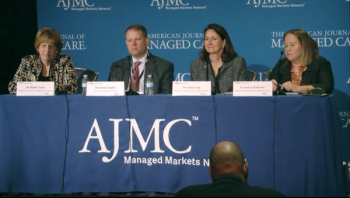
Although there have been some accusations of "cookbook medicine" with regards to measurement guidelines, panelists Dennis Scanlon, PhD, Jess DeMartino, PhD, Phyllis Torda, and Laura Long, MD, do see progress to remedy the situation and make guidelines more effective.
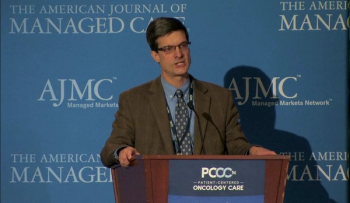
Although the healthcare industry values what it tends to measure, what is measured is not necessarily what should have the most value, according to John Fox, MD, senior medical director and associate vice president of medical affairs at Priority Health.
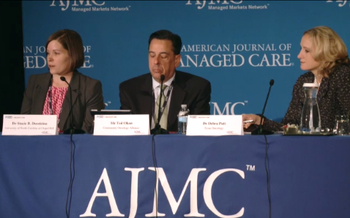
Education of both patients and providers will be necessary to temper expectations of cancer care treatment outcomes, according to panelists Ted Okon, BS, MBA, executive director of the Community Oncology Alliance, Debra Patt, MD, MPH, partner at Texas Oncology, and Stacie Dusetzina, PhD, assistant professor at the University of North Carolina, Chapel Hill.

259 Prospect Plains Rd, Bldg H
Cranbury, NJ 08512
© 2025 MJH Life Sciences®
All rights reserved.
